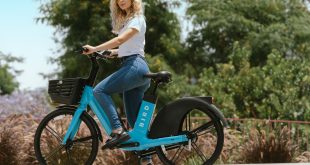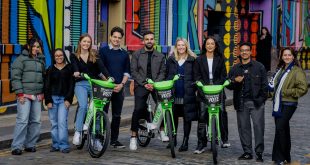As the UK moves towards low-car cities, disabled people need to be at the heart of the decision-making, according to a climate charity.
Following the publication of a report by the University of Westminster’s Active Travel Academy and charity Possible, the co-authors have highlighted the need for cities to consider people with disabilities as they are re-designed.
The report, which is the product of in-depth interviews and focus groups from people with a range of disabilities, found that people often felt ‘left out’ of planning decisions during the introduction of low-car infrastructure during the pandemic.
One respondent said: “Over the pandemic all sorts of street changes cropped up without proper consultation. And some of those things are just making it much harder for disabled people to move around.”
Anzir Boodoo, car-free cities consultant for climate charity Possible and co-author of the report said: “This report shows what disabled have been saying for a long time – when disabled people are a central part of urban design processes, then cities become more accessible for all. The status quo locks many disabled people into car dependency, but it doesn’t have to be this way. If we built truly accessible streets and a public transport system that all disabled people could use, we could transition away from cars in a way that was fair for everyone.”
Participants in the report recognised that reducing car-use is a vital part of addressing the climate crisis, according to Possible, but they emphasised that there is a risk of creating infrastructure unfit for all users.
As one participant suggested: “If we could get more people who are able to use public transport to use it, then that could reduce the number of cars in town and city centres, which could leave it open for disabled people to access it by whatever means they need to.”
Esilia Verlinghieri, senior research fellow at the Active Travel Academy and report co-author said: “Our highly-disabling transport systems have long ignored disabled people’s needs, producing exclusionary walking, wheeling, cycling environments and inaccessible public transport. The result? Disabled people, and many others, have been forced to rely on car journeys. A fair transition to cities without mass private car ownership has to consider the differing mobility and accessibility needs of different groups of people. A low-car future has the potential to be better for disabled people if it can reverse the disabling conditions of our inaccessible cities and put the needs of those who find travelling more challenging first in planning decisions.”
Read more: The importance of data in the active travel spectrum
Hirra Khan Adeogun, head of car-free cities at climate charity Possible, said: “There’s no way we can meet the challenge of the climate crisis without massive reductions in car use. Disabled people are really concerned about the climate crisis and they know that massive changes will be required to meet our climate goals. But they’re understandably fearful of those changes due to historically being left out of consultations. So we need to redesign our cities, and we need to do it with disabled people making significant contributions as to how that redesign happens in a way that doesn’t further disadvantage disabled people.”
 micromobilitybiz Delivering news updates to the micromobility industry, focusing on e-bikes, e-scooters and green transport
micromobilitybiz Delivering news updates to the micromobility industry, focusing on e-bikes, e-scooters and green transport




